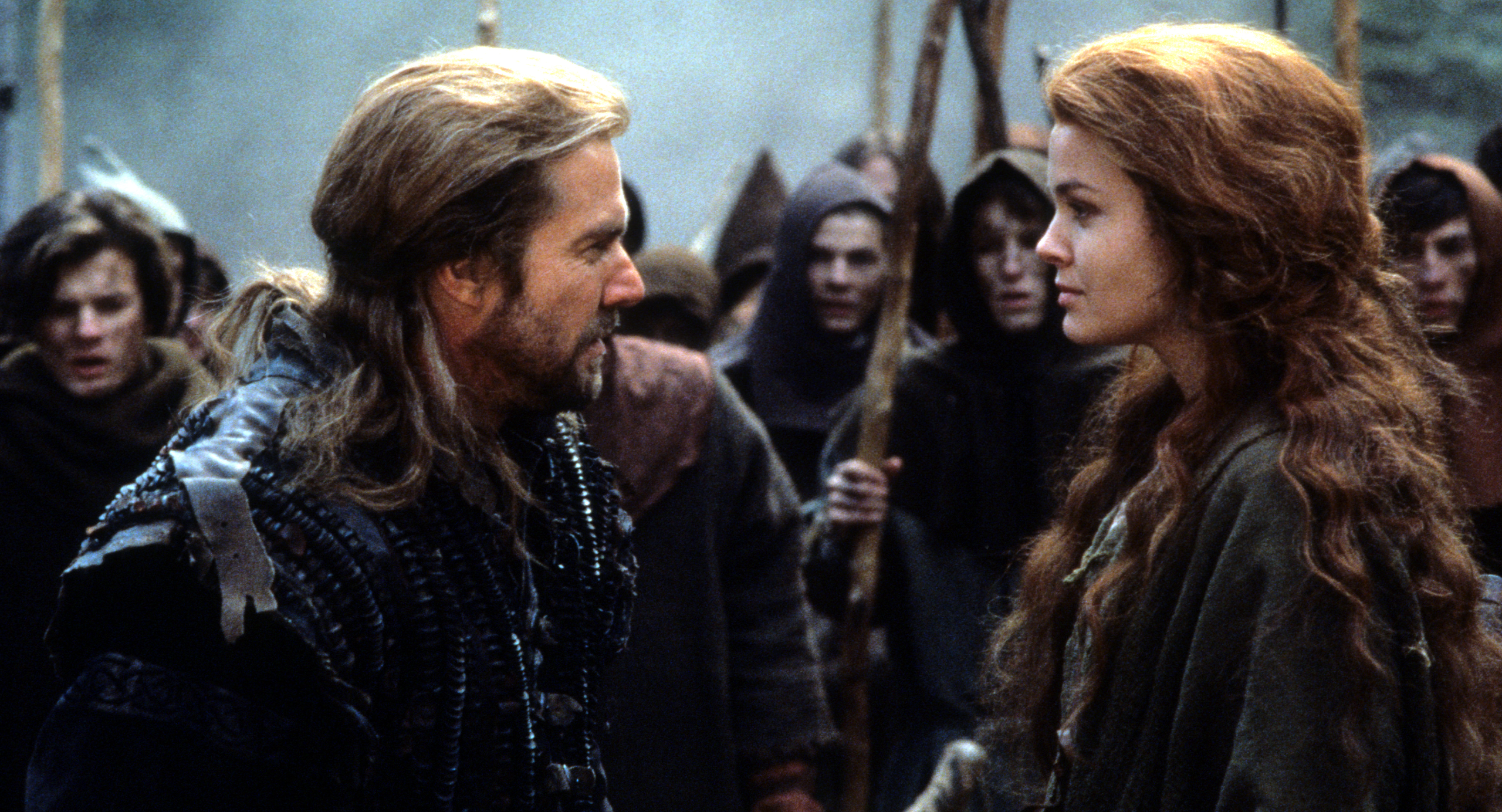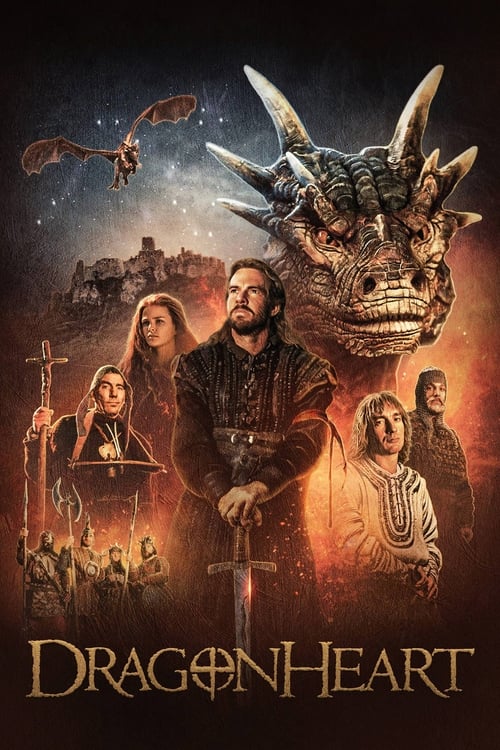Dragonheart – Film Review
Published April 19, 2024

The realm of medieval fantasy, with its rich tapestry of heroism, mythical creatures, and enchanting landscapes, holds an indelible appeal for filmmakers and audiences alike. Attempting to carve its niche within this illustrious genre, Dragonheart (1996) embarked on an ambitious journey that, while noble in its intentions, sadly fell short of its aspirations. Directed by Rob Cohen and boasting an ensemble cast headlined by Dennis Quaid, David Thewlis, and the vocal talents of Sean Connery as the dragon Draco, the film aimed to blend heartfelt storytelling with cutting-edge special effects. Despite these efforts, Dragonheart ends up as a mixed bag,.
At the heart of Dragonheart‘s narrative is a tale of redemption, loyalty, and the bond between the most unlikely of friends: a disillusioned knight and a noble dragon. Quaid’s portrayal of Bowen, a knight whose disillusionment with humanity leads him to form a pact with Draco, aiming to con village folk with staged battles, is both charismatic and earnest. However, the character’s journey from cynicism back to the path of the true knight errant is often predictable and lacks the depth or complexity one might hope for in a character-driven drama.
Sean Connery’s voice acting as Draco brings a certain gravitas and warmth to the dragon, imbuing the CGI character with a personality and wisdom that stand as one of the film’s highlights. The dynamic between Draco and Bowen serves as the emotional core of the movie, providing moments of genuine connection and humor. Nonetheless, the relationship, while touching, sometimes veers into the realm of the formulaic, failing to explore the deeper nuances of their inter-species bond.
David Thewlis as the malevolent King Einon is where the casting seems to notably misfire. While Thewlis is undoubtedly a skilled actor, his portrayal of the tyrannical ruler often comes across as one-dimensional, lacking the layers of villainy and charm that could have elevated the character beyond the archetypical evil king. This lack of depth in the antagonist undermines the stakes and diminishes the narrative’s overall impact.
The plot of Dragonheart, while holding promise with its unique premise, suffers from a pacing that can only be described as erratic. The screenplay by Charles Edward Pogue attempts to weave together themes of redemption, sacrifice, and the fight against tyranny but often finds itself bogged down by clichés and a predictable structure. Key moments meant to elicit emotional resonance feel unearned, a consequence of the film’s struggle to fully flesh out its characters and their motivations. The film’s attempts at humor and modern-day colloquialisms, meant to endear the characters to the audience, at times, feel out of place within its medieval setting, breaking the immersive experience.
From a technical standpoint, Dragonheart was groundbreaking for its time, particularly in its rendering of Draco. The dragon was among the earliest instances of a fully CGI character playing a central role in a feature film, a technical marvel that paved the way for future advancements in the field. While the CGI has inevitably aged in the decades since its release, the craftsmanship behind Draco remains commendable. The visual effects, helmed by Industrial Light & Magic, showcase a dedication to pushing the boundaries of what was technically possible in the mid-’90s. However, when juxtaposed with the more advanced CGI capabilities of modern cinema, Draco’s visual rendering might not hold the same awe for contemporary audiences, occasionally detracting from the character’s believability and emotional impact.
Randy Edelman’s score for Dragonheart stands out as one of the film’s unequivocal successes. The music beautifully captures the essence of adventure and the fantastical, with the main theme being particularly memorable and evocative. Edelman’s compositions add a layer of epic scope to the narrative, even when the storytelling falters.
The production design and costuming in Dragonheart successfully evoke the medieval world, from the rustic villages to the imposing castles. The attention to detail in creating a lived-in world adds a visual richness to the film, even when other aspects fail to fully engage. The battle scenes, while not particularly innovative in choreography, are competently executed, providing the necessary action beats expected in a fantasy epic.
Ultimately, Dragonheart stands as a film of contradictions. It offers a premise brimming with potential and moments that hint at a truly captivating cinematic experience, yet it’s marred by execution that seldom rises to the heights it reaches for. The performances, particularly Connery’s, are memorable, but are often undermined by a script that doesn’t afford the characters the complexity or growth they deserve.
